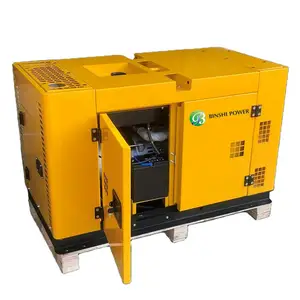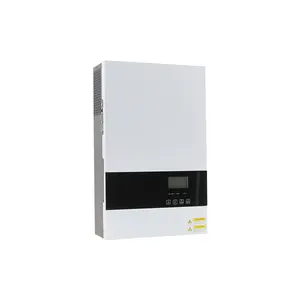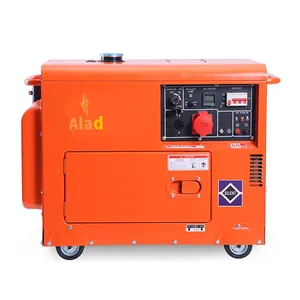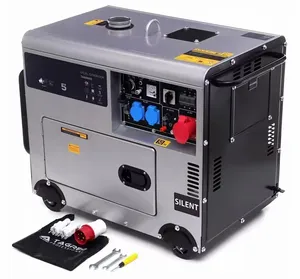Sektörünüzde popüler
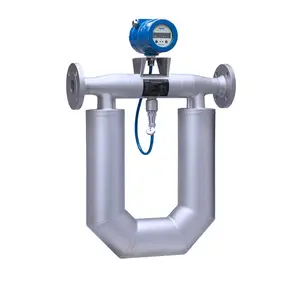





Yüksek kaliteli Coriolis kütle akış ölçer sıvı gaz Coriolis debimetre yağ yoğunluğu akış ölçer kütle akış ölçer yem bulamaç
₺52.916,31 - ₺273.424,50
Minimum Sipariş Miktarı: 1 Takım
Parça başına nakliye: ₺519,55







3A onayı üçlü kelepçe geçme burç süt akış ölçer sıhhi manyetik debimetre gıda sınıfı elektromanyetik akış ölçer
₺11.083,62 - ₺15.932,70
Minimum Sipariş Miktarı: 1 Adet
Parça başına nakliye: ₺1.708,27







Taşınabilir ultrasonik akış ölçer ultrasonik el akış ölçeri süt akış ölçer
₺13.508,16
Minimum Sipariş Miktarı: 1 Takım
Parça başına nakliye: ₺2.944,09







316L sıhhi manyetik akış ölçer gıda sınıfı süt bira pekmez Mag debimetre elektromanyetik akış ölçer
₺14.547,25 - ₺18.010,88
Minimum Sipariş Miktarı: 1 Adet
Parça başına nakliye: ₺1.708,27







Siemens7ME6520-3MC13-2AA1 elektromanyetik debimetre DN80 orijinal 3 inç EN 1092-1
₺17.941,61 - ₺19.223,15
Minimum Sipariş Miktarı: 5 Adet







Düşük fiyat almanya KOBOLD Float-tip debimetreler/anahtarları DSV-2101HROR08
₺10.390,89
Minimum Sipariş Miktarı: 5 Adet






Almanya Krohne OPTIMASS 1000 Kütle debimetre En Iyi fiyat ile
₺17.318,15 - ₺34.636,30
Minimum Sipariş Miktarı: 1 Takım






Almanya klon elektromanyetik debimetre OPTIFLUX4300C nokta teknik parametreler: çap: DN150
₺114.299,79
Minimum Sipariş Miktarı: 1 Kutu






Faydalı uygulamalar ve enerji yönetim sistemleri için orijinal almanya optiopti4200 girdap akış ölçer
₺57.149,90
Minimum Sipariş Miktarı: 1 Adet












Orijinal almanya Rota Yokogawa rotametre debimetre 1 "150 # paslanmaz rotametre RAMC02-A1SS-64S2-T90NNN/SD
₺20.781,78
Minimum Sipariş Miktarı: 1 Adet
İlgili Aramalar:






Krohne Optiflux2100c Optiflux4100w Optifulx2300f Optiflux4300c Optiflux elektromanyetik debimetre
₺27.709,04
Minimum Sipariş Miktarı: 1 Adet






Shanghai Cixi 100% almanya teknolojisi akış karıştırma ölçer Hall sensörü anahtarı akış ölçer
₺15.586,34 - ₺20.747,15
Minimum Sipariş Miktarı: 1 Adet

Düşük Maliyetli Krohne OPTIFLUX 2100/4100 serisi elektromanyetik debimetre
₺69.272,60 - ₺138.545,20
Minimum Sipariş Miktarı: 1 Adet

Proline Promass 83F50 DN50 Coriolis kütle akış ölçer
₺86.590,75 - ₺232.063,21
Minimum Sipariş Miktarı: 1 Adet


Proline Prosonic Flow 91W Endress + Hauser ultrasonik debimetre
₺53.686,27 - ₺62.345,34
Minimum Sipariş Miktarı: 1 Adet






Sıcak satış orijinal almanya Endress Hauser Proline Promass F 300 Coriolis kütle debimetre akış ölçer
₺58.535,35 - ₺158.980,62
Minimum Sipariş Miktarı: 1 Adet






OEM almanya kalite totalized dijital ekran metal boru debimetre rotametre biyogaz gaz akış ölçer dijital rotametre
₺10.321,62 - ₺10.806,53
Minimum Sipariş Miktarı: 1 Takım






Endress + Hauser 100% orijinal otantik CNGmass Coriolis debimetre 8FF08 8FF15 8FF25 Coriolis debimetre yüksek kaliteli iyi fiyat
₺34.636,30 - ₺173.181,50
Minimum Sipariş Miktarı: 1 Adet





Tıbbi alet çift duvara monte ile oksijen debimetre almanya adaptör
₺173,19 - ₺692,73
Minimum Sipariş Miktarı: 100 Adet






Almanya sert kauçuk astar Hart elektromanyetik manyetik debimetre 2 inç
₺9.698,17 - ₺10.390,89
Minimum Sipariş Miktarı: 1 Adet
Parça başına nakliye: ₺1.643,50


Tıbbi iki kişi başucu Plug-In gaz Inhaler Me4546-Gd hastane/tıbbi Din oksijen debimetre
₺654,63 - ₺865,91
Minimum Sipariş Miktarı: 10 Adet






Serin su elektromanyetik akış ölçer almanya manyetik akış ölçer manyetik akış ölçer dönüştürücü modbus çıkışı ile
₺10.771,89 - ₺11.533,89
Minimum Sipariş Miktarı: 1 Adet
Parça başına nakliye: ₺1.643,50






Almanya sert kauçuk astar Hart elektromanyetik manyetik debimetre 2 inç
₺10.390,89 - ₺12.122,71
Minimum Sipariş Miktarı: 1 Adet












Almanya sert kauçuk astar ile 2024 weelectromagnetic elektromanyetik manyetik debimetre 2 inç
₺6.407,72 - ₺8.659,08
Minimum Sipariş Miktarı: 1 Adet






Entegre manyetik debimetre Dn100 8 inç Rs485 dijital su elektromanyetik akış ölçer
₺10.972,44 - ₺11.360,37
Minimum Sipariş Miktarı: 1 Adet
Parça başına nakliye: ₺1.857,55






Endress + Hauser Promag H 100, 5H1B02, DN02 1/12 "elektromanyetik debimetre
₺121.227,05
Minimum Sipariş Miktarı: 1 Adet






100% orijinal almanya Endress Hauser 1-1_2 _ 150 # 316ss Promass F Coriolis debimetre 83f40-ukt9_101
₺62.345,34 - ₺65.808,97
Minimum Sipariş Miktarı: 1 Adet












Almanya standart elektrikli dijital Fuel Oil Wl türbin akış ölçer
₺1.489,37
Minimum Sipariş Miktarı: 2 Adet



Kütle akış ölçer-Coriolis cdw250'li besleyici. Alman kalitesi. Almanya'da yapıldı.
₺37.009,10 - ₺5.551.365,00
Minimum Sipariş Miktarı: 1 Birim






BTU metre ultrasonik debimetre almanya inline boru tipi ultrasonik su akış ölçer
Gönderime Hazır
₺9.698,17 - ₺10.356,26
Minimum Sipariş Miktarı: 10 Takım
Parça başına nakliye: ₺420,49












Endress + Hauser proline elektromanyetik debimetre Promag 55S50/80/1H/1Z 55S1F Proline
₺34.636,30
Minimum Sipariş Miktarı: 100 Adet






Orijinal almanya Yokogawa RAKD değişken alan şamandıra debimetre iyi fiyat ile Metal boru rotametre OEM özelleştirilmiş destek
₺5.195,45
Minimum Sipariş Miktarı: 1 Adet






Yepyeni almanya SIEMENSS SITRANS F M MAG 5100 W 7ME6580-4HC14-2AA1
₺20.781,78
Minimum Sipariş Miktarı: 1 Adet
Parça başına nakliye: ₺1.041,86

Almanya GESTRA iletkenlik debimetre NRG19-50 1000mm
₺13.612,07 - ₺13.854,52
Minimum Sipariş Miktarı: 1 Adet






Orijinal Almanya Krohne OPTIMASS 1000 Kütle debimetre
₺5.195,45 - ₺27.709,04
Minimum Sipariş Miktarı: 1 Takım
En iyi kategoriler
almanya debimetre hakkında
Devasa dijitalleştirilmiş ve verimli koleksiyondan yararlanın. Tüm elektrik akımı ölçüm ihtiyaçlarınız için Alibaba.com'da almanya debimetre. Gelişmiş bilimsel yenilikler ve güçlü teknolojilerle desteklenen bu ürünler, doğru ve tutarlı okumalar için hassastır. İster konutta ister ticari bir kuruluşta kullanmak isteyin, bunlar. almanya debimetre, görevlerinizi yerine getirecek kadar çok yönlüdür. . almanya debimetre, sitede listelenen en iyi markaların sertifikaları ve kalite güvenceleriyle birlikte gelir.
Çeşitli voltaj besleme gereksinimleri olan bunlar. almanya debimetre, maksimum fayda sağlayan geniş bir ölçüm endüktans aralığı sunar. Dış gövdeleri, ABS ve sertleştirilmiş plastik gibi güçlü malzemelerden oluşur. almanya debimetre, farklı zorlu kullanım ortamlarında uzun ömür ve dayanıklılık sunmak için. Bunların yararlı özelliklerinden bazıları. almanya debimetre konferans, onları benzersiz bir şekilde verimli kılan çevrimiçi kalibrasyon, küçük değerli ölçümler ve kapasitif mikro denetleyici hassas yönetimini içerir.
Alibaba.com'da. almanya debimetre, her müşterinin en ideali elde etmesini sağlayan canlı renklere, farklı şekillere, farklı boyutlara ve etkileyici tasarımlara sahip birden çok çeşide sahiptir. Otomatik ve manuel aralıkları. almanya debimetre, sigorta alarmları ve hassas ortam ve nesne sıcaklığı ölçüm seçenekleriyle donatılmıştır. Bunlar verimli. almanya debimetre, içlerinde bulunan akıllı tanıma özellikleri sayesinde akıllı okumalar sunar.
Değişikliklere göz atın. almanya debimetre Alibaba.com'da çeşitlilik gösterir ve bu ürünleri bütçeniz dahilinde rekabetçi tekliflerle alın. Sitede satıcılarla bağlantı kurduğunuzda, bu birinci sınıf ürünlerdeki benzersiz baskılar gibi diğer özelleştirme seçeneklerini de tercih edebilirsiniz. Bir bankayı kırmadan düşmeyi önleyici yumuşak kauçuk kılıf gibi ekstra koruyucu önlemlerin keyfini çıkarın.
Çeşitli voltaj besleme gereksinimleri olan bunlar. almanya debimetre, maksimum fayda sağlayan geniş bir ölçüm endüktans aralığı sunar. Dış gövdeleri, ABS ve sertleştirilmiş plastik gibi güçlü malzemelerden oluşur. almanya debimetre, farklı zorlu kullanım ortamlarında uzun ömür ve dayanıklılık sunmak için. Bunların yararlı özelliklerinden bazıları. almanya debimetre konferans, onları benzersiz bir şekilde verimli kılan çevrimiçi kalibrasyon, küçük değerli ölçümler ve kapasitif mikro denetleyici hassas yönetimini içerir.
Alibaba.com'da. almanya debimetre, her müşterinin en ideali elde etmesini sağlayan canlı renklere, farklı şekillere, farklı boyutlara ve etkileyici tasarımlara sahip birden çok çeşide sahiptir. Otomatik ve manuel aralıkları. almanya debimetre, sigorta alarmları ve hassas ortam ve nesne sıcaklığı ölçüm seçenekleriyle donatılmıştır. Bunlar verimli. almanya debimetre, içlerinde bulunan akıllı tanıma özellikleri sayesinde akıllı okumalar sunar.
Değişikliklere göz atın. almanya debimetre Alibaba.com'da çeşitlilik gösterir ve bu ürünleri bütçeniz dahilinde rekabetçi tekliflerle alın. Sitede satıcılarla bağlantı kurduğunuzda, bu birinci sınıf ürünlerdeki benzersiz baskılar gibi diğer özelleştirme seçeneklerini de tercih edebilirsiniz. Bir bankayı kırmadan düşmeyi önleyici yumuşak kauçuk kılıf gibi ekstra koruyucu önlemlerin keyfini çıkarın.

